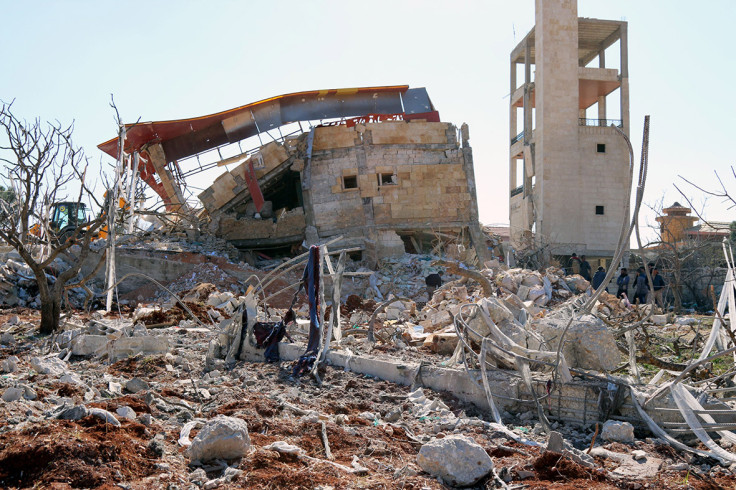Syria MSF hospital bombed: 'Russian warplanes' targeted rescuers with 'second tap' air strike

Doctors Without Borders (MSF) said rescuers who rushed to the aid of victims of an air strike against a hospital in Syria were hit by a second attack, which the charity described as deliberate and outrageous. At least 25 people were killed as MSF-supported medical structure in Maaret al-Numan, a rebel-held town in Idlib province, was bombed and destroyed on 15 February. Fatalities included nine medical personnel and 16 patients.
Joanne Liu, MSF international president said some were killed in a secondary strike that hit as they were trying to rescue people trapped under the debris. "Four missiles struck the hospital in an attack lasting about two minutes. Forty minutes later, after rescuers arrived, the site was bombed again," she said.
"These secondary strikes- in military jargon – known as "double taps" – that target rescue and medical personnel trying to save the injured are outrageous," she added. "But it didn't stop there. A nearby hospital that received many of the wounded from the first strike was itself hit an hour later".
MSF said although not certain, the bombing was probably the work of Syrian or Russian military jets. Russia denies the claim, although its warplanes had been pounding the area at the time of the incident. "Healthcare in Syria is in the crosshair of bombs and missiles," Liu said. "Today, Syria is a kill box."
The charity said it had not given the coordinates of the destroyed facility to the Syrian regime, as it feared it would be targeted instead of protected. A large number of health facilities have in fact come under attack in the escalating conflict.
"We gave to the Russian ambassadors in Paris (and) in Geneva coordinates for three hospitals located in very intense conflict zones, but not for all of them, and it was a decision taken together with the medical staff of the health facilities that we support," said MSF operations director Isabelle Defourny.
"It was a huge discussion inside MSF and mainly with the medical directors of the health facilities that we support inside Syria," she added. "The staff of the hospital (and) the director of the hospital didn't know if they would be better protected if they give the GPS or not."
Defourny said that nonetheless Maaret al-Numen was "not underground or invisible", and its location was actually widely known. MSF works only in rebel-held areas of Syria as the regime of Bahsar al-Assad has not granted it permission to operate in the country.
Paris and Ankara have accused Russia of perpetrating war crimes following the Maaret al-Numan incident and the bombing of another four medical facilities in rebel-held Syria.
© Copyright IBTimes 2025. All rights reserved.






















